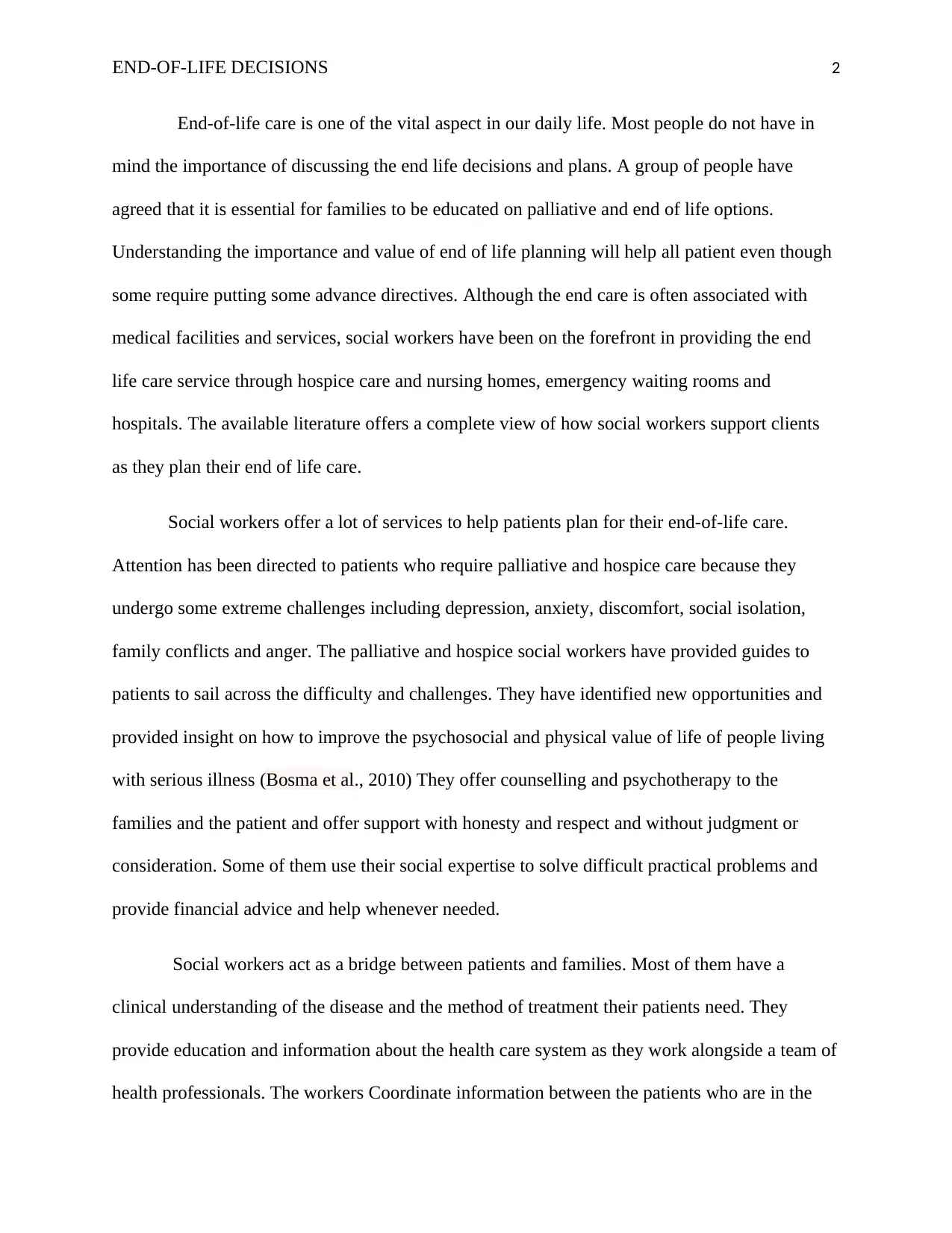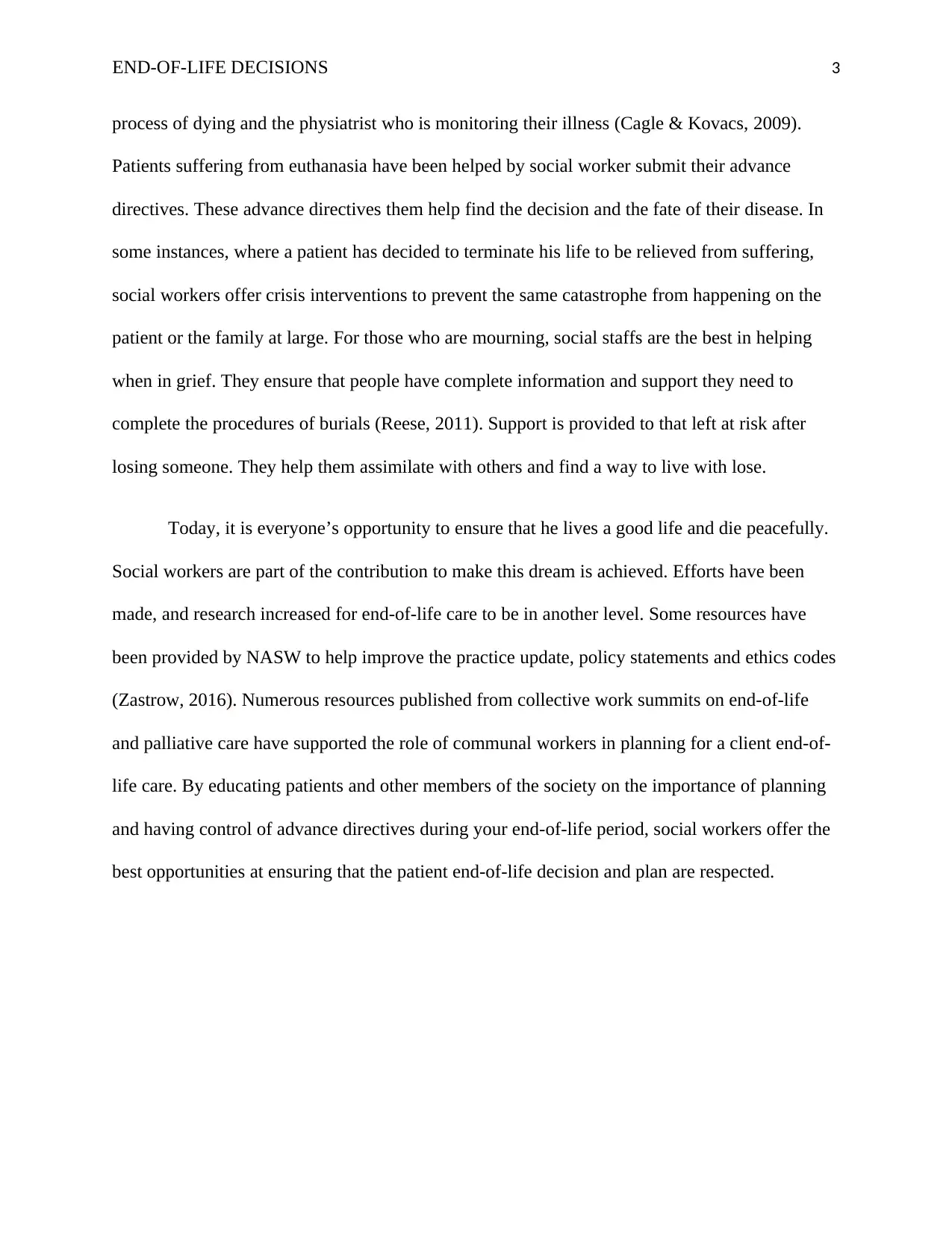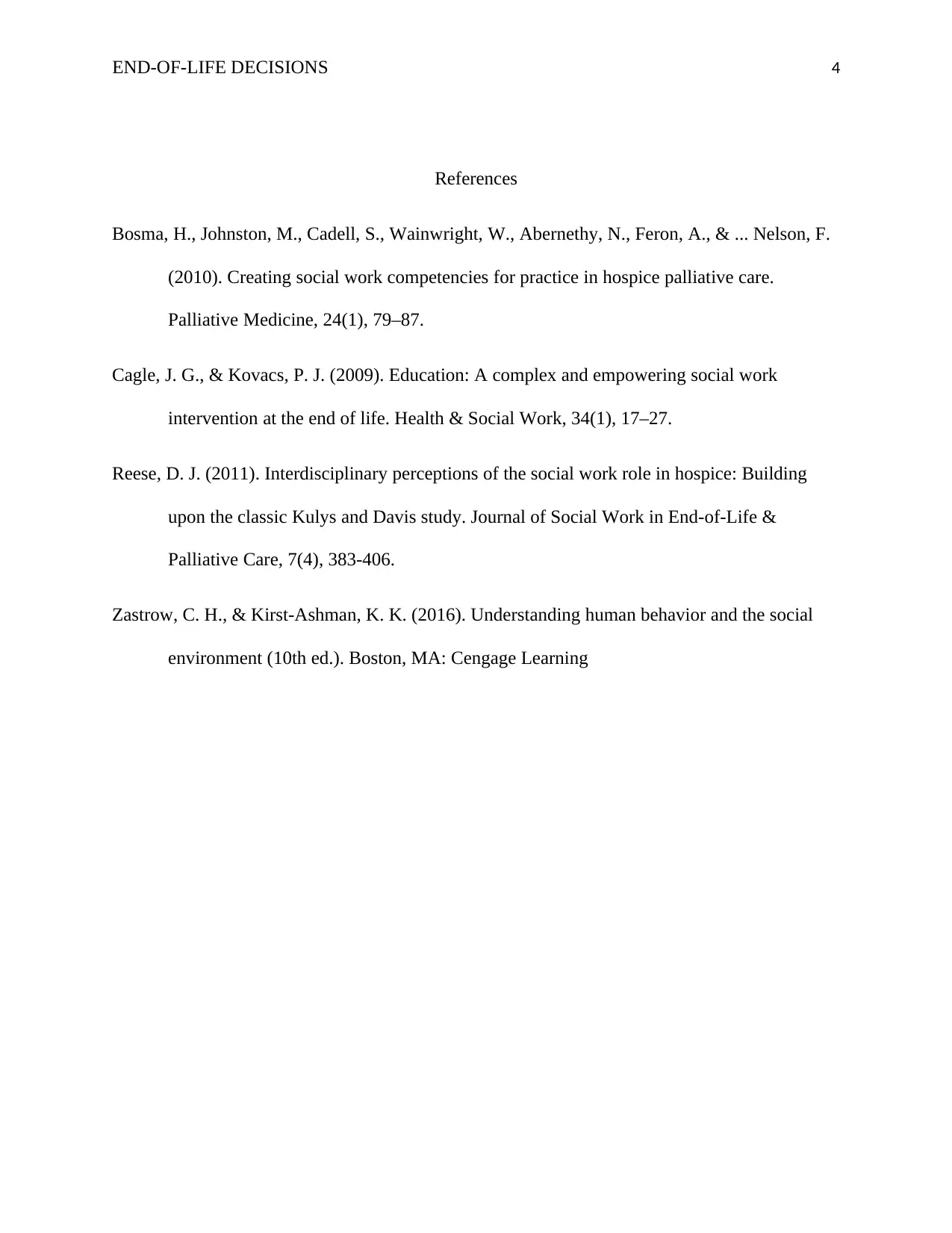The Role of Social Workers in End-of-Life Decisions and Planning
VerifiedAdded on 2023/01/11
|4
|840
|89
Report
AI Summary
This report delves into the critical area of end-of-life decisions, emphasizing the essential role of social workers in providing comprehensive support and guidance to patients and their families. It highlights the significance of discussing end-of-life plans and the value of palliative and hospice care, illustrating how social workers assist with advance directives, offer counseling, and solve practical problems. The report discusses the challenges faced by patients, including depression, anxiety, and family conflicts, and how social workers provide resources and support to navigate these difficulties. Additionally, it covers the coordination of information between patients and healthcare professionals, crisis intervention, and grief support. The report references key literature, including Bosma et al. (2010), Cagle & Kovacs (2009), Reese (2011), and Zastrow (2016), to underscore the importance of end-of-life planning and the ongoing efforts to improve care through practice updates and ethical guidelines. The report concludes by underscoring the social worker's role in ensuring patients' end-of-life decisions are respected.
1 out of 4











![[object Object]](/_next/static/media/star-bottom.7253800d.svg)